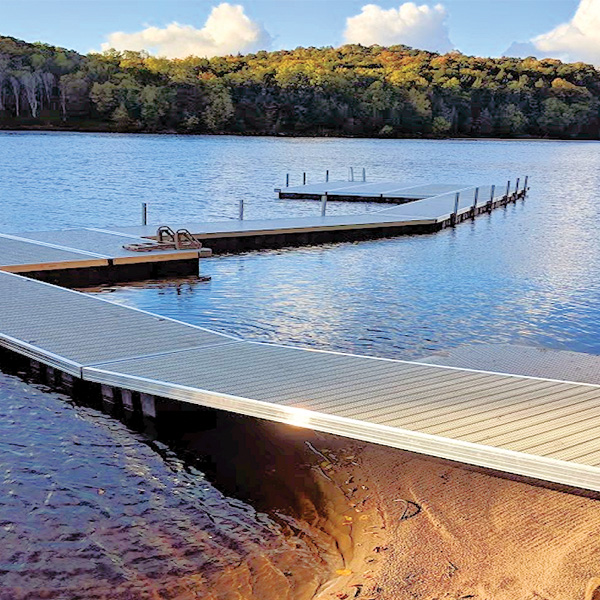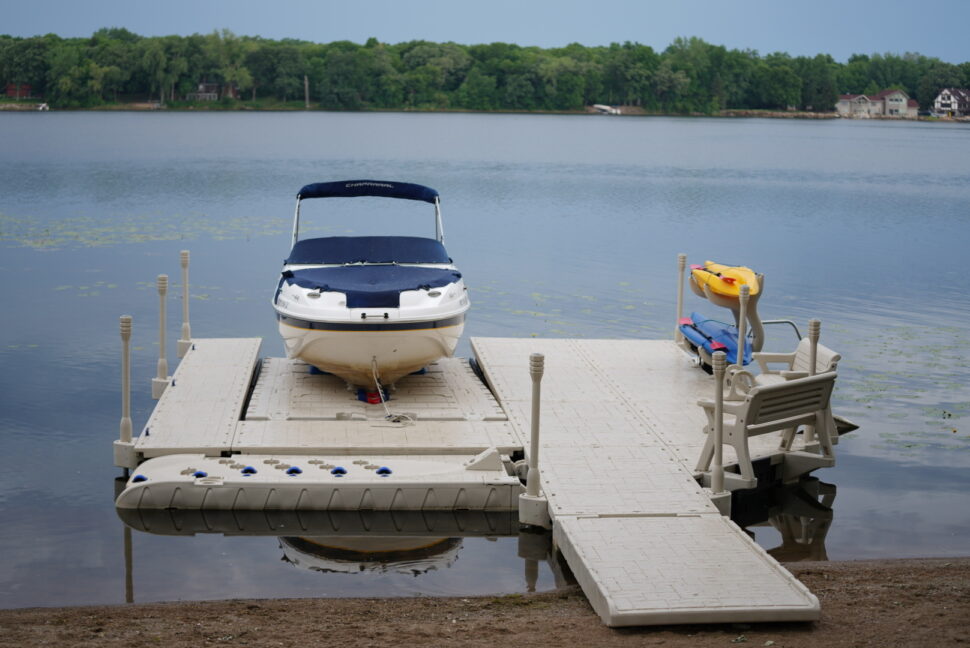Navigating the Options: Choosing the Right Dock Company for Your Floating Dock Task
Navigating the Options: Choosing the Right Dock Company for Your Floating Dock Task
Blog Article
Floating Docks: The Ideal Choice for Versatile Water Gain Access To
Floating docks present an engaging remedy for a variety of water gain access to requires, providing convenience that goes beyond traditional mooring choices. Their capacity to adjust to ever-changing water degrees while ensuring stability and security makes them especially useful for both recreational and industrial applications. Moreover, the modular nature of floating docks assists in personalization, dealing with specific requirements. However, the subtleties of installment and upkeep, along with the series of applications, warrant a closer examination to fully appreciate their possible advantages and ramifications for waterway gain access to approaches.
Advantages of Floating Docks
Floating docks deal many advantages that enhance water accessibility for different applications. Their capability to rise and drop with transforming water levels makes them especially advantageous in atmospheres with fluctuating tides or seasonal variants. This flexibility guarantees that vessels can quickly moor without problem for the water's deepness, supplying a trustworthy platform for entertainment, business, and industrial usages.
Additionally, floating docks are frequently built from sturdy materials that withstand deterioration, making them suitable for long-lasting usage in aquatic atmospheres. Their installment is usually much less intrusive than traditional fixed docks, minimizing the environmental effect and facilitating quicker implementation (floating docks). This versatility enables less complicated relocation or reconfiguration according to individual requirements or environmental modifications
Safety is another key benefit; floating docks can give stable gain access to for individuals disembarking or boarding from boats and reduce the threat of crashes related to unsteady surface areas. Moreover, they can be designed to accommodate a variety of devices, such as cleats and fenders, improving performance. Generally, floating docks stand for an efficient service for improving water access across diverse industries while promoting safety and security and environmental sustainability.

Types of Floating Docks
Different sorts of floating docks provide to different requirements and environments, each developed with certain features to enhance capability. The most usual types consist of modular docks, which contain interlocking areas that permit for easy modification and expansion. These docks are ideal for leisure usage, as they can be customized to fit different watercraft sizes and water conditions.
One more preferred alternative is the stationary floating dock, which stays anchored in location but floats with altering water degrees. floating dock services. This kind is specifically suited for areas with minimal tidal variations, providing stable gain access to for fishing or swimming. Furthermore, there are drive-on docks, which feature a sloped style that permits watercrafts to conveniently drive on and off, making them ideal for individual watercraft and smaller vessels
For industrial applications, durable floating docks are offered, built from strengthened products to withstand significant loads and harsh marine environments. Environmentally friendly floating docks use lasting products and styles to reduce environmental impact, frequently incorporating features like vegetation to sustain neighborhood wild animals. Comprehending the various types of floating docks makes certain that customers can choose explanation the most appropriate remedy for their certain needs.
Installment Refine Summary
An effective setup of floating docks requires cautious planning and attention to information to guarantee optimum efficiency and safety. The first step includes evaluating the site conditions, consisting of water depth, existing, and possible barriers. This evaluation educates the choice of the appropriate dock products and design tailored to the specific environment.
Following, getting essential licenses is crucial, as numerous territories have laws pertaining to building and construction on water bodies. The installment can continue when consents are secured. Begin by preparing the foundation, which may involve anchoring systems or pilings customized to the dock type and regional problems.
Complying with the foundation configuration, assemble the dock areas according to producer specs. Guarantee that all parts are firmly fastened and lined up to hold up against ecological tensions. Position the dock in the designated location, guaranteeing it is degree and stable.

Upkeep Tips and Best Practices
After the setup procedure is full, ongoing upkeep plays an important function in making certain the longevity and functionality of floating docks. Regular assessments need to be carried out to determine any type of signs of damage, damages, or wear - floating dock services. Check for any type of loosened installations, splits, or splitting up in the dock sections, as these can compromise architectural integrity
Cleaning up the dock is important to eliminate particles, algae, and various other build-up that can impact its look and safety and security. Make use of a gentle stress wash occasionally to maintain sanitation without creating damages to the surface. In addition, applying a safety other sealant every couple of years can assist enhance longevity and withstand ecological wear.
Take notice of the mooring lines and supports, ensuring they are safe and secure and cost-free from rust. Replace any type of abject parts quickly to prevent hazards. Seasonal adjustments might additionally be necessary; throughout extreme weather problems, enhancing the dock or rearranging can stop damages.
Applications for Floating Docks
Floating docks serve a plethora of applications, satisfying both industrial and recreational demands. In recreational setups, they offer seamless accessibility to rivers for activities such as boating, fishing, and swimming. Their flexible nature permits installation in varying water levels, ensuring risk-free and secure access despite tidal changes.
Readily, floating docks are important for marinas and waterfront businesses. They assist in the docking of vessels, enabling effective unloading and packing of goods. Their modular design permits very easy growth or reconfiguration to accommodate transforming company needs, making them perfect for boat leasings, trip procedures, or fishing charters.
Additionally, floating docks are used in environmental applications such as marine research study and environment repair. They can act as systems for scientific researches, keeping track of water high quality, or performing wildlife studies without troubling sensitive ecological communities.
In industrial contexts, floating docks are utilized in building projects, supplying access to hard-to-reach locations for equipment and employees. Their adaptability, longevity, and very little effect on the environment make them an ideal option for a variety of applications, enhancing both performance and access in various water-based atmospheres.
Conclusion
Finally, floating docks represent an optimal service for varied water gain access to requires, owing to their versatility, toughness, and modular layout. These frameworks promote risk-free mooring for various applications while lessening environmental influence during installation. The reduced maintenance needs additionally improve their practicality. Therefore, floating docks function as a useful asset for leisure, commercial, and environmental projects, guaranteeing reputable access to rivers and advertising lasting techniques in water atmospheres.
Floating docks existing a compelling service for a variety of water gain access to requires, providing versatility that goes beyond traditional mooring choices.Floating docks deal numerous advantages that enhance water accessibility for various applications. Generally, floating docks stand for an effective solution for enhancing water access across varied industries while advertising security and ecological sustainability.
One more popular alternative is the fixed floating dock, which stays anchored in location yet floats with changing water degrees.In final thought, floating docks represent an ideal solution for varied water accessibility requires, owing to their versatility, toughness, visit their website and modular style.
Report this page